Game remakes are so commonplace at this point that most gamers have a list, at least in their heads, of which games they would most like to see remade. But I’m going to go out on a limb and say I doubt many gamers have many Game Boy Advance games on their lists.
The GBA was a great little machine, no doubt. But it was mostly known for scaled down versions of games made famous on the big-boy consoles. Still, for what it’s worth, Mario vs. Donkey Kong was generally regarded as one of the GBA’s best games, and 20 years later, a remake that no one was particularly crying out for has arrived on the Switch.
Old platforming on a new platform
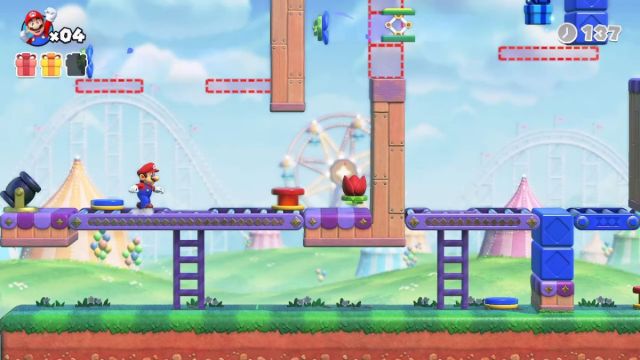
The idea behind Mario vs. Donkey Kong is to take the concept of the original barrel-hopping, hammer-smashing Donkey Kong arcade game and flesh it out with a plethora of pocket-sized platform-puzzling levels. So, while the boss battles all play like variations on the classic Donkey Kong concept—whereby Donkey Kong is at the top of the level throwing things down at you that you have to avoid as you jump your way to the top—the bulk of the gameplay takes classic 2D Mario platformer gameplay and condenses into a puzzle game where the levels are no bigger than a few screens, and no longer than a few minutes each.
This bite-size formula lent itself very well to the GBA’s pick up ‘n’ play philosophy, and the Switch version will definitely appeal more to players who favor Handheld Mode. Most of the game remains largely unchanged from the GBA version. The graphics have been updated, of course, and two completely new game worlds have been added. Plus, there’s now a co-op mode, which is fun but, like this remake as a whole, not something anyone was really asking for. You can play co-op using a single Joy-Con, which is always welcome, but by its very nature, co-op isn’t spontaneous and pick up ‘n’ play. So, it’s a bit of an awkward fit for a game otherwise suited to brief, impromptu bursts of fun.
Elegant simplicity
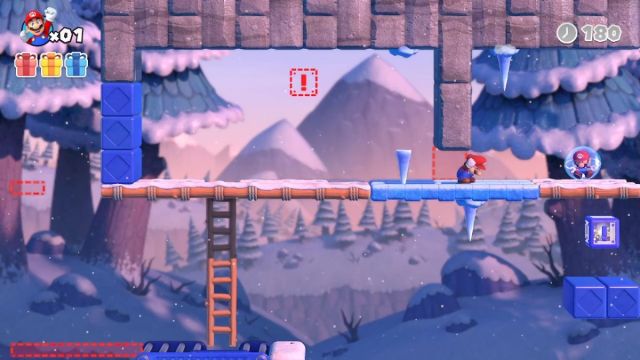
While there are few aspects of the Mario vs. Donkey Kong remake’s very existence that are a little questionable, it remains fundamentally a very solid game. Its level design is a masterclass in trimming the fat from an idea until all that’s left is a simple, neat, tidy, elegant puzzle or set of puzzles. For the most part, it’s not especially challenging (although levels 7-3 and 8-3 are likely to cause a few headaches), but it’s nonetheless very satisfying. Even in instances where I figured out the puzzle immediately, it still felt good to execute the solution. Mario vs. Donkey Kong certainly delivers more than its fair share of “Aha!” and “Now I get it!” moments, and it mostly avoids frustrations that games of this ilk tend to fall into.
The two new worlds are up to scratch in terms of level design, with the ice-themed Slippery Summit in particular introducing a fun new sliding mechanic into the mix. The weakest two worlds, for me, were the last two, during which the difficulty sees some pretty sharp spikes. It didn’t bother me that the puzzles got harder to figure out. The problem was the levels got a lot more hazardous. Where for most of Mario vs. Donkey Kong’s duration, the worst fate that’s likely to befall you is running out of time because you spent too long thinking, the last dozen levels or so are packed with spikes, lasers, and projectile-wielding enemies that don’t really add anything other than frustration to the experience.
Difficulty spikes (and lasers)
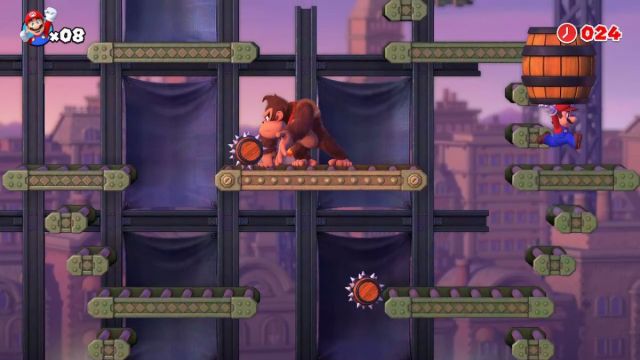
When the price of a mis-timed or mis-judged jump is death, you have to do the easy part of the level again and again. And honestly, while the controls are perfectly adequate for the methodical pace of the first 75 percent of the game, they’re not quite responsive enough for the precision and timing that a few of the later levels demand. Mario is particularly slow to change direction for some reason, and, on countless occasions, I saw his feet clear the top of an enemy (which should allow him to land safely on top of it), only for the game’s collision detection to rule that I had jumped into and not onto the enemy; an error punishable by death.
Still, late-game frustrations aside, Mario vs. Donkey Kong is mostly a high-quality experience. I can’t recommend it as a must-play—as it doesn’t do anything especially ambitious or revolutionary and doesn’t feel like great value for money—but it does what it does extremely well. Fans of the original who really want to play it again won’t be disappointed, and anyone who loves pure, refined puzzle design will also find a lot to appreciate and enjoy here.
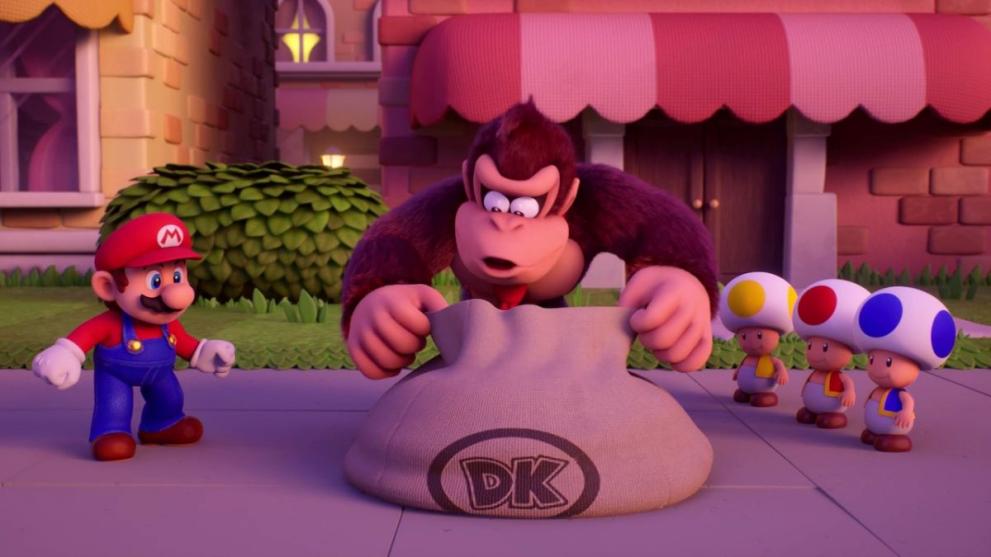
- Elegant level design
- Charming soundtrack
- Perfect for Handheld Mode
- Frustrating in places
- Not great value
- Wasn’t crying out for a remake


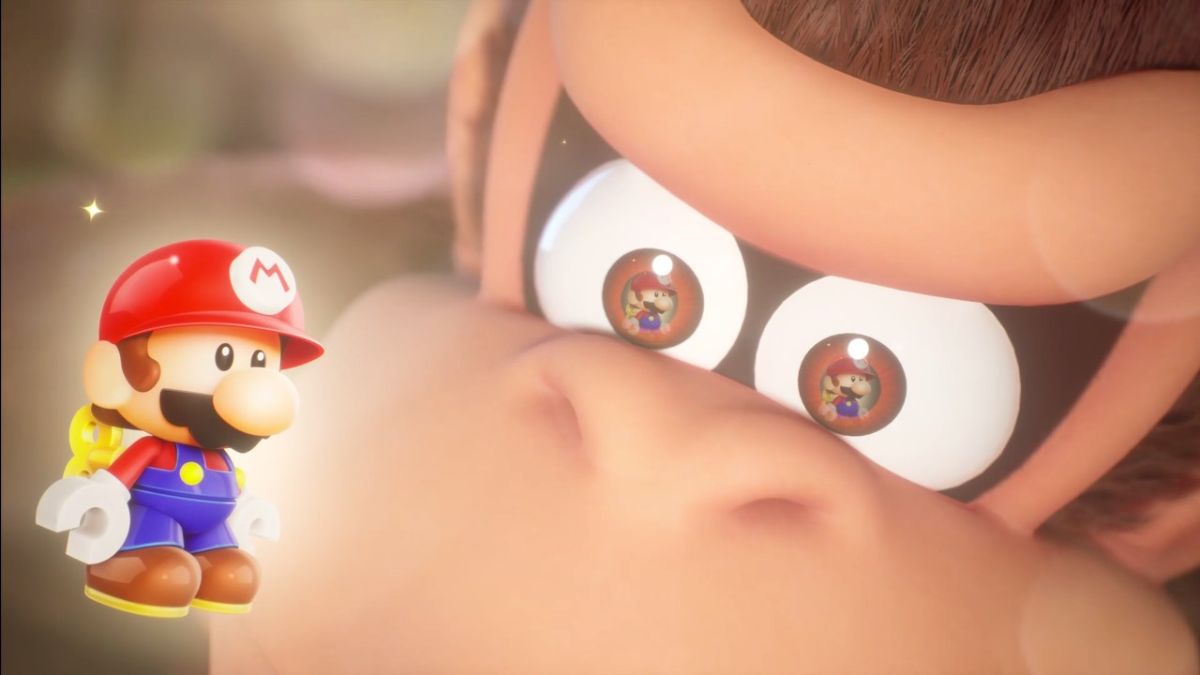

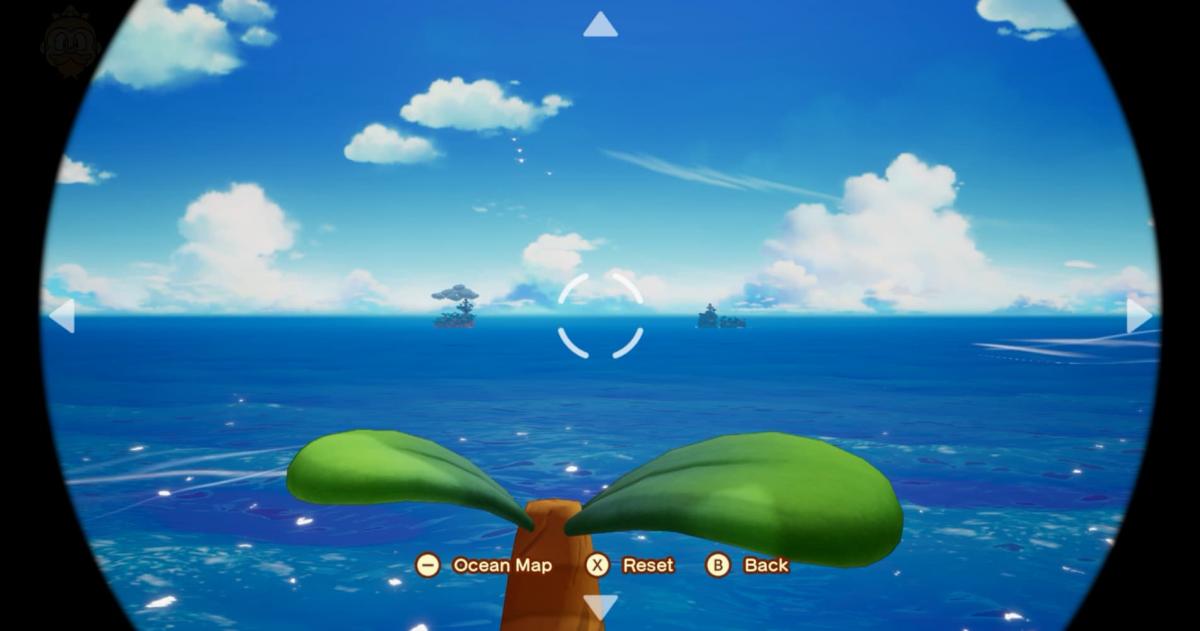
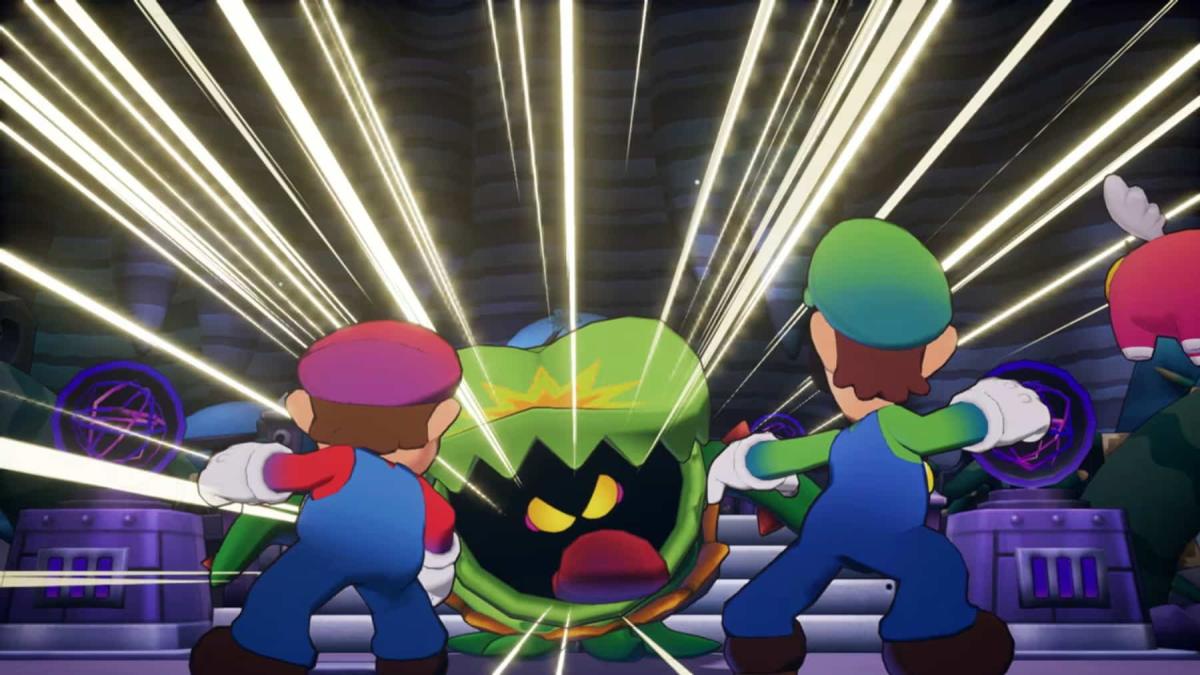
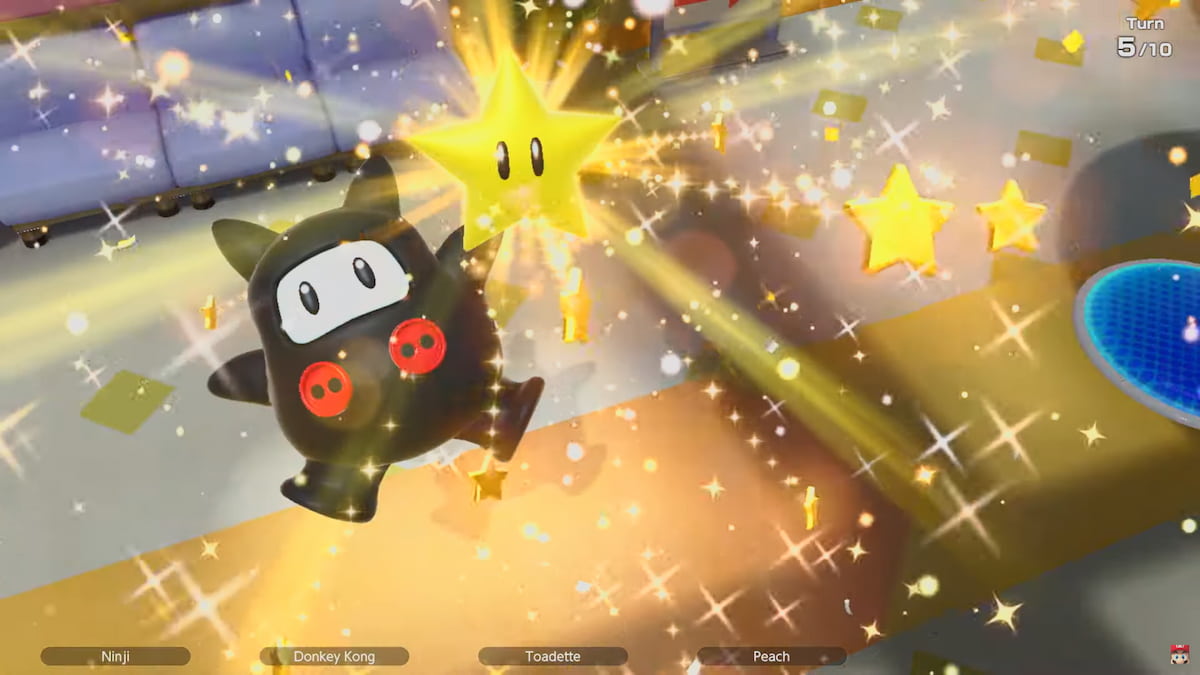
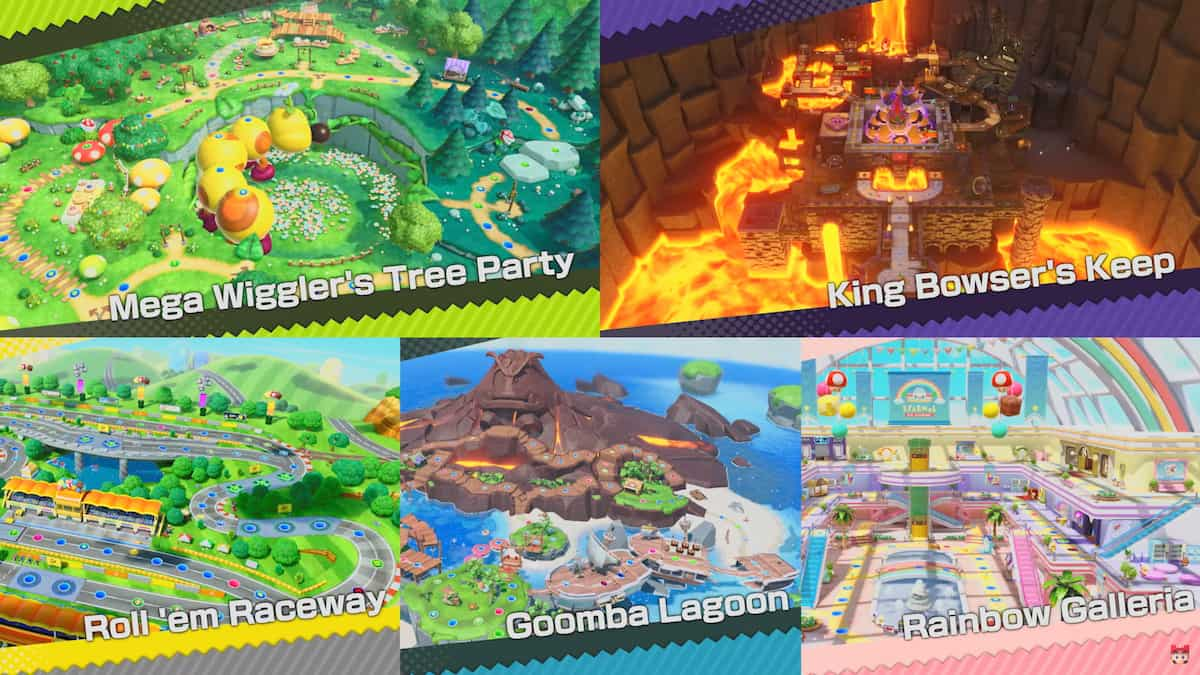
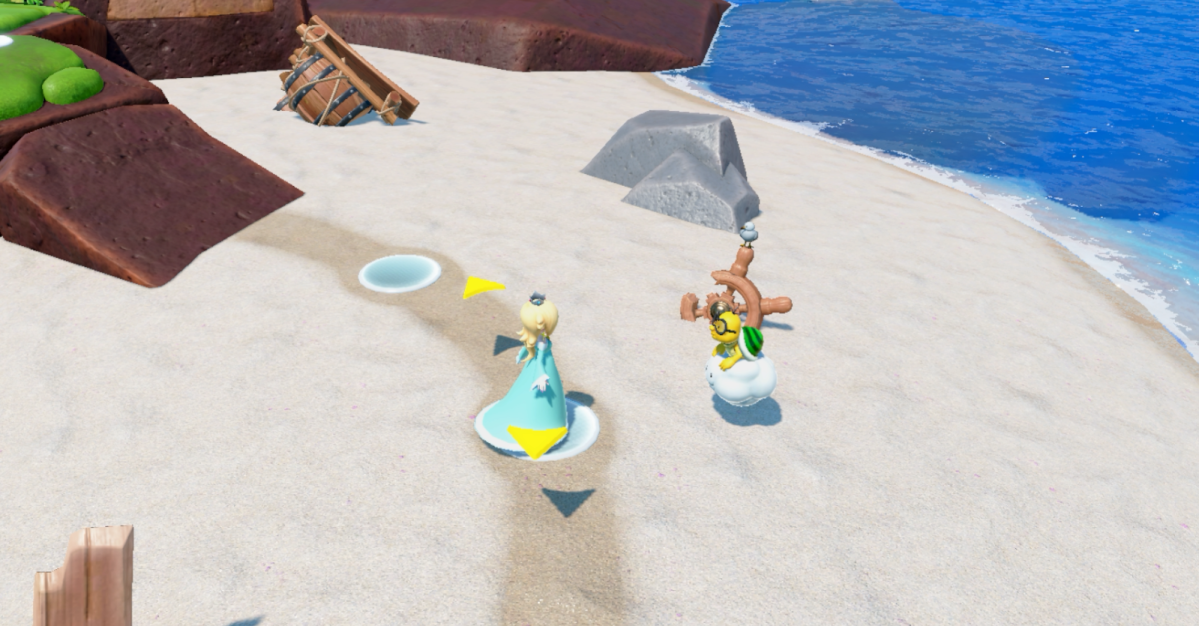
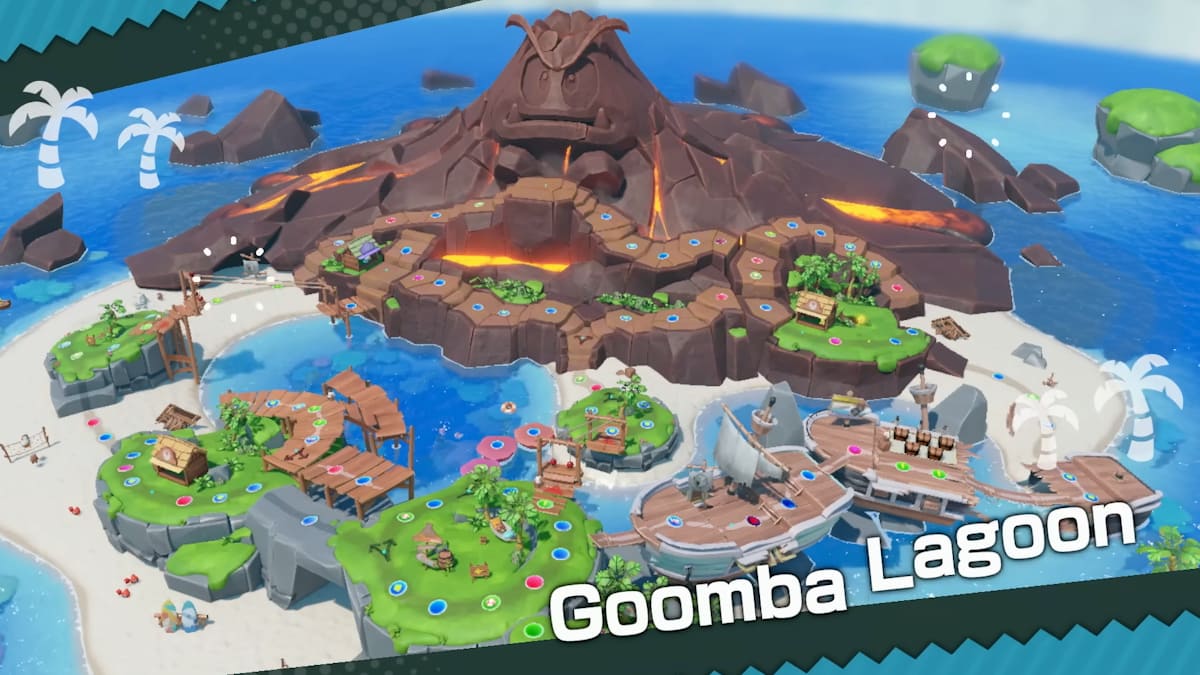
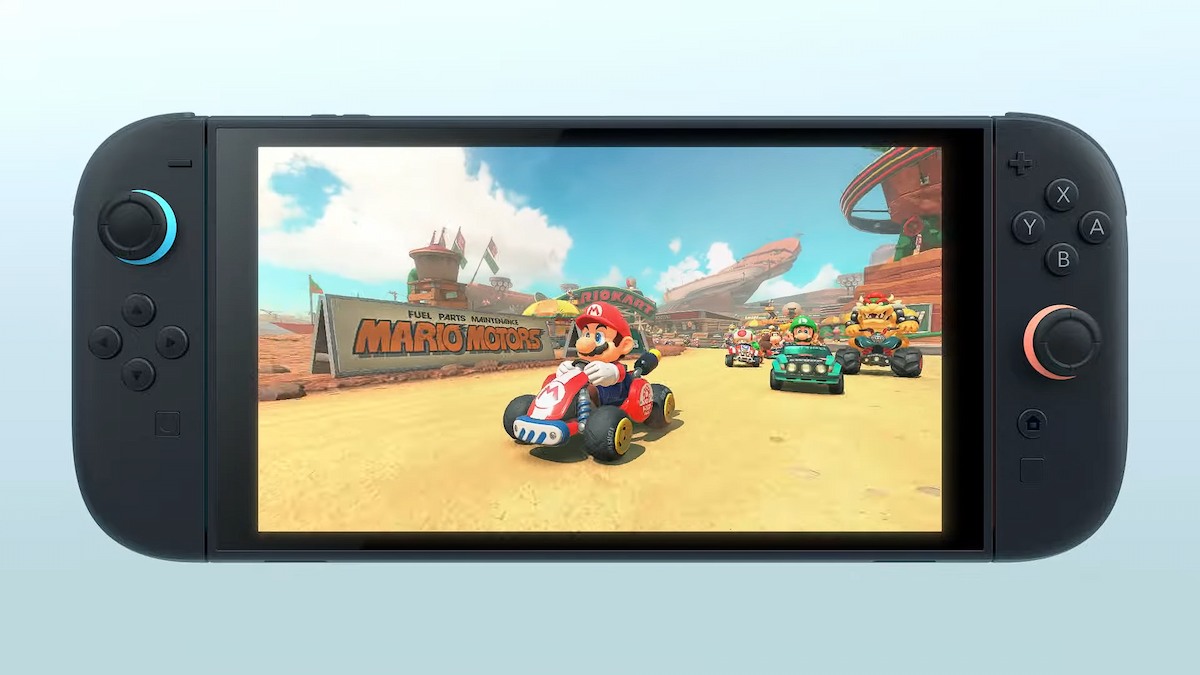
Published: Feb 20, 2024 06:23 am